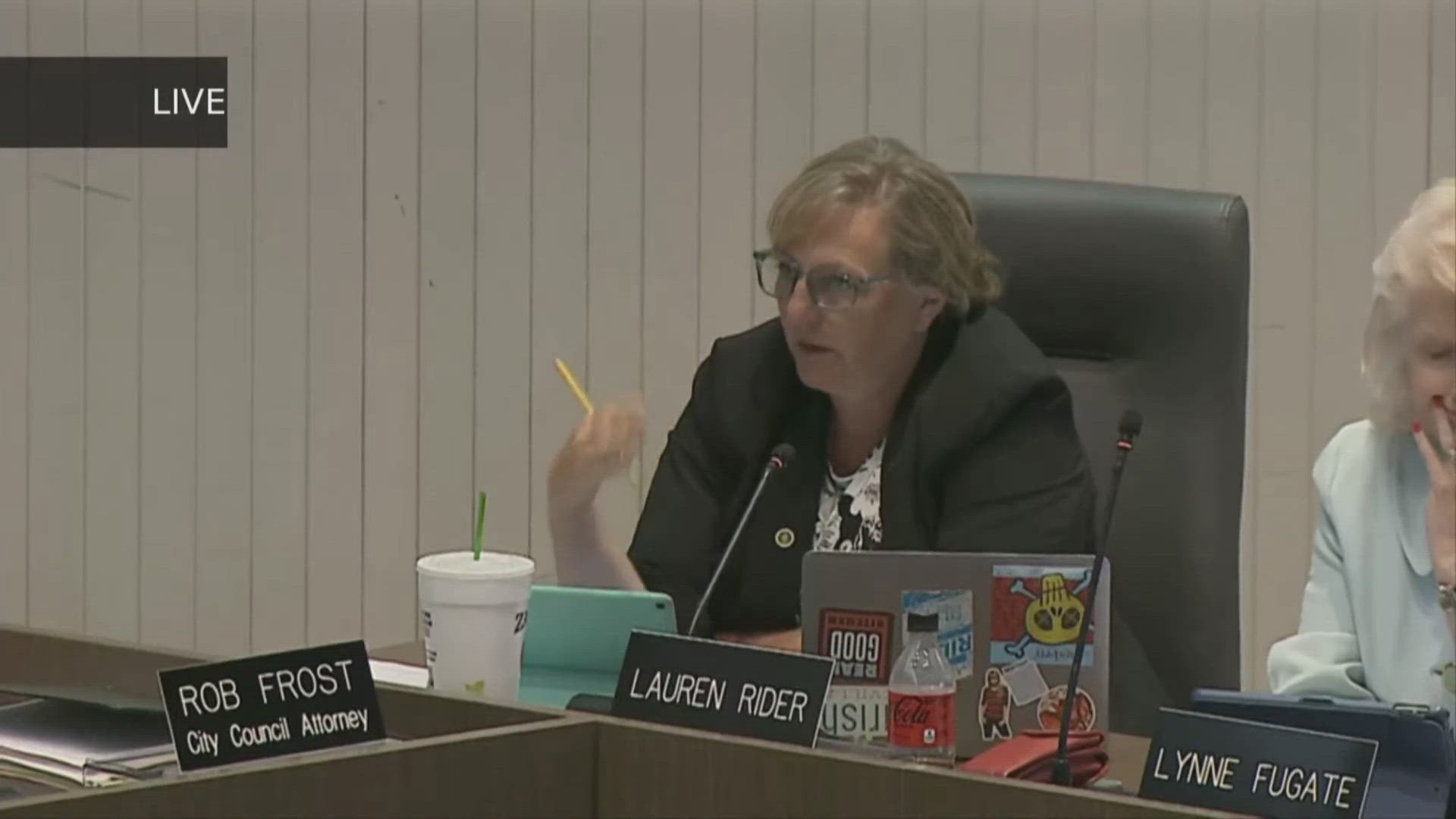KNOXVILLE, Tenn. — Competing proposals were on the agenda for Knoxville City Council's regular meeting on Tuesday. They were introduced after state lawmakers passed a law that requires the city to change how it conducts elections.
The state law was condemned by the Knoxville vice mayor and most members of the Knoxville City Council as an overreach of state power. Governor Bill Lee signed the law in May 2023 and it took effect on Jan. 1.
Previously, when Knoxville voters headed to the polls during city primary elections, they were allowed to vote for candidates only in their district. During the city general elections, however, Knoxville voters could vote for candidates in every city council election, including districts outside the one they live in.
The law puts a stop to that style of voting and instead requires the city to follow how most state municipalities choose leaders, implementing district-limited elections. PC 0391 was introduced by Representative Elaine Davis (R - Knoxville) and deleted an exception to state law that allowed Knoxville to implement its own election structure.
Knoxville City Council needed to decide how to change its election rules to align with state law. There were effectively two proposals — one requested by most members of the council and the other requested by Amelia Parker.
The first proposal passed and effectively preserves citywide elections in Knoxville, according to Andrew Roberto. If it goes into effect, voters citywide could participate in primary and general elections. He said it creates a hybrid at-large system for the city council, effectively making every seat an at-large seat that all voters in Knoxville could cast a ballot on. It would create "regional" at-large representatives and residency requirements for candidates.
At-large seats are seats that are not directly tied to a district and are instead elected by municipalities as a whole. The Knoxville City Council currently has three at-large seats. All eligible voters in Knoxville can cast ballots for candidates in those races, regardless of the districts they live in.
This style of voting has faced criticism for impacting minority voting rights. Black communities and communities of color may not have as strong a voice on city councils if all people in a city vote for candidates. By keeping elections district-limited, minority communities may be able to preserve a voice on city councils, according to the Municipal Technical Advisory Service.
"No matter what good arguments justify at-large systems, where there is a significant minority population in identifiable pockets, they are viewed as an instrument which either dilutes, or have the high potential to dilute, the voting strength of minority groups," the service said.
"To be clear, the sole purpose of agenda item 12b is to preserve the right of every Knoxville voter to vote for all nine members of city council," Roberto said in a release.
In the release, he pointed to the 2017 election of council member Seema Singh, in the Third District. It said if the city had district-limited elections, she would not have served.
"Our city’s recent election history reveals that district-only races have been decided by as few as 576 voters. That means 576 voters could decide the fate of about 200,000 Knoxville citizens. In 2017, council member Singh received 199 votes in the district primary to her opponent’s 377 votes. If this race had been decided by only a 3rd district election as offered in item 12c, (and without city-wide voting) our Council would have lacked Seema’s significant contributions and leadership over the last 7 years," it said.
Almost all members of the city council supported the proposal, except for Parker. It passed Tuesday evening on the first reading, and would at least need to pass on the second reading before taking effect.
Parker said in a post online she had concerns creating a hybrid at-large system could impact the voting rights of minority communities. She also said district-limited races may attract more candidates than citywide races, and said by just adjusting Knoxville's election schedule the city could stay in compliance with state law and preserve voter strength.
Her proposal would effectively comply with state expectations for the city's elections and limit voting to voters' districts. The city council voted to postpone it until their next meeting.
Another ordinance from Councilmember Charles Thomas would align elections for the Fifth District with every other city district. It passed on Tuesday. Thomas represents the Fifth District.
Parker said with these proposals, voters would decide on their district's city council representatives in 2029 before deciding on the city's three at-large seats in 2031.
"My proposal and the proposal presented by Councilman Thomas would create a clear path forward for our city elections and strengthen the voices of district voters, not erase them," she said online. "I have heard from constituents that they worry district-only elections will make city council less accountable to city voters. I understand the concern. My research indicates that having viable alternatives for voters and competitive races is what helps hold elected officials accountable."
The city said it needs to pass a new election structure by Aug. 20 to ensure that military ballots are not delayed for the November election.

